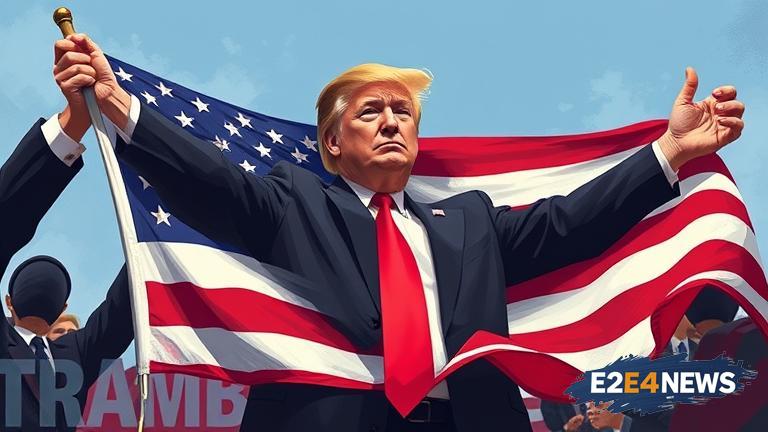In a move that has been met with widespread criticism, US President Donald Trump has announced plans to ban the burning of the American flag, a form of protest that is currently protected by the US Constitution. The President’s decision has been seen as a direct attack on freedom of speech and has sparked outrage among civil liberties groups and politicians. The burning of the flag is a highly symbolic and emotive act that is often used by protesters to express their discontent with government policies or actions. Despite being a legal form of protest, the act of burning the flag is often seen as deeply offensive to many Americans, who view it as a sacred symbol of their country. Trump’s decision to ban the burning of the flag has been seen as a populist move, designed to appeal to his base of supporters who are deeply patriotic and opposed to any form of protest that they see as disloyal. However, the move has also been criticized for being unconstitutional and an attack on the fundamental rights of Americans to express themselves freely. The US Supreme Court has previously ruled that the burning of the flag is a form of protected speech, and any attempt to ban it would be likely to face significant legal challenges. The President’s decision has also been seen as a distraction from more pressing issues, such as the ongoing COVID-19 pandemic and the economic crisis that it has triggered. Many have questioned the timing of the announcement, which comes as the country is grappling with a number of significant challenges. The move has also been criticized for being a form of political theater, designed to shore up support among Trump’s base of supporters rather than addressing the real issues facing the country. Despite the controversy surrounding the issue, Trump has remained defiant, tweeting that the burning of the flag is a ‘disgrace’ and that those who engage in it should face ‘consequences’. The President’s comments have been seen as a clear attack on the principles of free speech and have sparked widespread condemnation. The American Civil Liberties Union (ACLU) has been among the organizations to criticize the President’s move, stating that it is ‘unconstitutional’ and ‘un-American’. The organization has vowed to challenge any attempt to ban the burning of the flag in court, citing the Supreme Court’s previous rulings on the issue. Other organizations, including the National Association for the Advancement of Colored People (NAACP) and the Anti-Defamation League (ADL), have also spoken out against the President’s move. The controversy surrounding the issue has highlighted the deep divisions within American society, with many on both sides of the debate holding strongly opposing views. While some see the burning of the flag as a legitimate form of protest, others view it as a deeply offensive act that should be banned. The issue has also sparked a wider debate about the role of free speech in American society, with many arguing that it is essential to the health of democracy. Others, however, have argued that free speech should have limits, particularly when it comes to acts that are seen as deeply offensive or disrespectful. As the controversy continues to unfold, it remains to be seen how the President’s move will be received by the courts and the wider American public. One thing is certain, however: the issue of flag burning has sparked a heated and divisive debate that is unlikely to go away anytime soon. The President’s decision has also raised questions about the limits of executive power and the role of the judiciary in protecting individual rights. The move has been seen as a clear example of the President’s willingness to push the boundaries of his authority, even when it comes to issues that are protected by the Constitution. The controversy surrounding the issue has also highlighted the importance of a free and independent press, which has been instrumental in holding the President to account for his actions. As the debate continues to rage on, it is clear that the issue of flag burning will remain a highly contentious and emotive issue for many Americans. The President’s move has sparked a wider conversation about the role of patriotism and nationalism in American society, with many arguing that these values should be balanced against the need to protect individual rights and freedoms. Ultimately, the issue of flag burning will likely be decided by the courts, which will have to weigh the competing interests of free speech and national pride. The outcome of this debate will have significant implications for American society, and will likely shape the course of the country’s history for generations to come.
